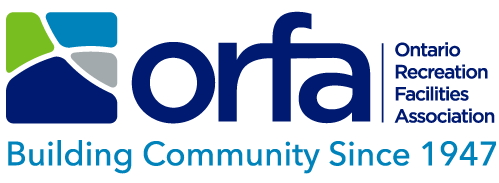- ORFA Home
- Resource Centre
- Technical Corner
- 25-Years Post Y2K – What Has Been Learned
Technical Corner
25-Years Post Y2K – What Has Been Learned?
January 9, 2025
Introduction
At the stroke of midnight on Dec. 31, 1999, it was predicted that every computer, and every device with a microprocessor and embedded software that stored and processed dates as two digits would face an operational problem. As a society, we were unsure if the existing software would accept the wrong date and carry on, producing garbage output. Or would it throw an error and carry on or, completely choke and crash, as well as other secondary concerns. The year 2000 was a leap year, and many computers didn't take this into account. As an industry we prepared for the worst as December 31st in many recreation facilities is a huge rental event, and having appropriate response plans in case of a crash in place was considered essential management. As the clock passed 12-midnight, and the dawn of the millennium occurred, there was no gigantic meltdown and life returned to normal.
Some members may unknowingly still have some of the Y2K investment in their operations today. In the same light, it has been 5-years since the pandemic and these same types of improved operational investments linger but few are actually still being utilized, even though they made our industry safer. Why they are not permanently adopted is purely a financial decision. Even though the investments made good emergency response sense, the ongoing investment in something that may never be used is often deemed unessential. [More]
The same rational is often applied to regulatory compliance obligations as many focus on meeting minimum requirements of conformity. The Fernie, BC ice arena tragedy is confirmation of our ability to try and forget such lessons as “it could never happen here” and is often adopted as an internal operational statement. The reality is that the aging inventory of recreation infrastructure will continually test our collective commitment to properly manage these investments. [More]
Those entering the recreation facilities industry today and remaining in their position will need to deal with the year 2038 problem (also known as Y2038, Y2K38, Y2K38 superbug or the Apocalypse) as it is the next predicted computing problem that will leave some computer systems unable to represent times after 03:14:07 UTC on 19 January 2038. Given the rapid pace of technology progress this may be a non-issue. However, this same change may bring bigger and more complicated challenges.
As the ORFA plans for a recreation emergency management symposium in 2026, these types of conversations will form part of the event. Be confident that the ORFA remains committed to leading the industry in these types of progressive and essential discussions.
Comments and/or Questions may be directed to Terry Piche, CRFP, CIT and Director, Training, Research and Development, Ontario Recreation Facilities Association
|
Note: The publisher, (Author(s)/General Editor(s)/Licensor(s)) and every person involved in the creation of this communication shall not be liable for any loss, injury, claim, liability or damage of any kind resulting from the use of or reliance on any information or material contained in this communication. While every effort has been made to ensure the accuracy of the contents of this communication, it is intended for information purposes only. When creating this communication, none of the publisher, the (Author(s)/General Editor(s)/Licensor(s)) or contributors were engaged in rendering legal or other professional advice. This communication should not be considered or relied upon as if it were such advice. If legal advice or expert assistance is required, the services of a competent professional should be sought and retained. The publisher and every person involved in the creation of this communication disclaim all liability in respect of the results of the any actions taken in reliance upon information contained in this communication and for any errors or omissions in the works. They expressly disclaim liability to any user of the work. |
